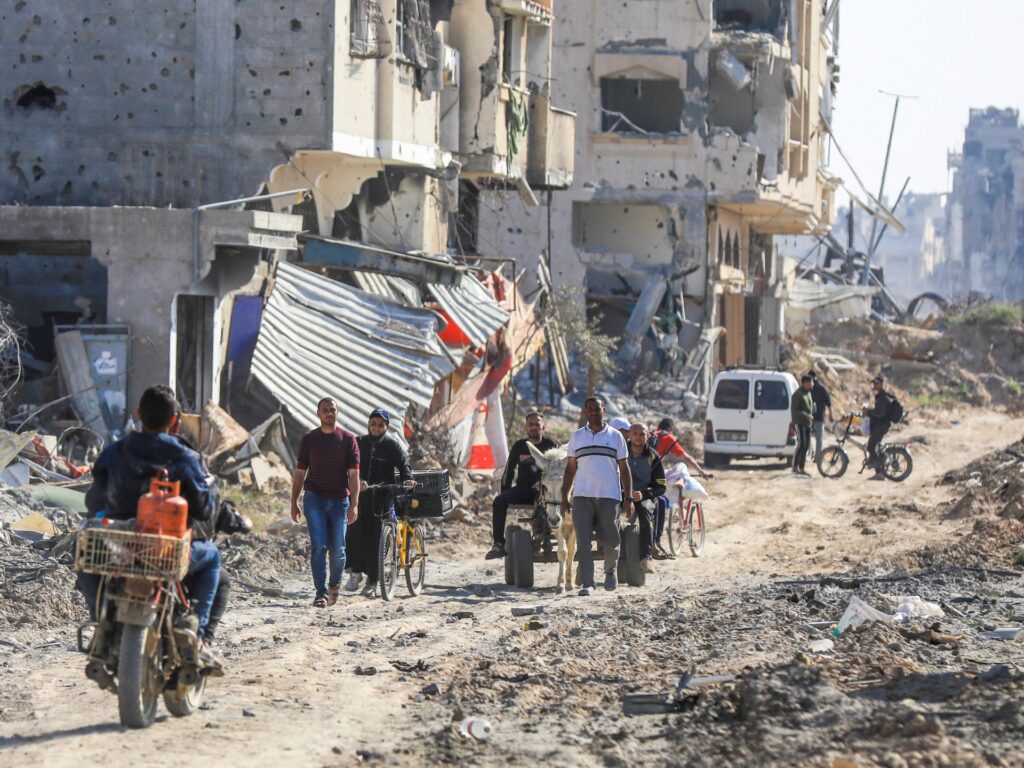Israeli and Hamas officials said there had been no significant progress in the latest round of Gaza ceasefire talks in Cairo, attended by representatives of mediators Egypt, Qatar and the United States.
“There is no change in the position of the occupation, so there is nothing new in the Cairo talks. … There is no progress yet,” Hamas officials said on Monday, shortly after reports of progress, citing Egyptian sources. He spoke to Reuters on condition of anonymity.
Israel's Ynet news agency quoted an unnamed Israeli official as saying that “nothing dramatic happened” at the meeting.
“There is no agreement in sight yet. There is still a long way to go and nothing dramatic has happened in the meantime,” the source said.
Ynet reported the statement from another Israeli official. “You need to be patient. It's possible, but we're not there yet.”
Much of the international community has expressed outrage at the Palestinian death toll and the humanitarian crisis arising from Israel's military operation aimed at annihilating Hamas in the Gaza Strip.
More than 33,000 Palestinians have been killed in Israel's war on Gaza since October 7, according to Palestinian officials.
Israel launched an attack on Gaza in response to the Hamas-led attack on Israel on October 7 that killed 1,139 people, according to an Al Jazeera tally based on Israeli statistics.
Hamas arrested 253 people at the time and took them back to Gaza. Of those, 133 prisoners remain, and negotiators say about 40 will be released in the first phase of a deal with Hamas.
The Israeli military said more than 600 soldiers were killed in the fighting.
The delegation plans to return to Cairo
Israel and Hamas sent a team to Egypt on Sunday following the arrival of CIA Director William Burns on Saturday. His presence underscored the growing pressure from the White House to conclude a cease-fire, release prisoners held in the Gaza Strip, and provide aid to stranded civilians.
Al Jazeera's Imran Khan, reporting from occupied East Jerusalem, said the fact that negotiations have not collapsed is a positive development.
“Clearly there is a framework for a ceasefire, the Israelis have now returned it to the war cabinet, and Hamas is discussing it within the movement,” he said.
Khan said senior Israeli politicians are indeed discussing the possibility of talks.
“Minister of Finance [Bezalel] Mr Smotrich has called for a meeting to get an update on what this framework looks like, and opposition leader Yair Lapid has said he will provide the government with a safety net to ensure some agreement is reached. I said I'm ready,” Khan said.
Two Egyptian security officials and the state-run Al-Qahera News reported on Monday that some progress had been made in the Cairo talks.
Security sources said both sides had made concessions that could help pave the way for a ceasefire agreement. The second phase of the ceasefire agreement, as proposed in the previous talks, will be implemented in three stages, with the release of the remaining Israeli prisoners and a long-term ceasefire.
They said the concessions were linked to Hamas' demands for the release of Israeli prisoners and the return of displaced people to northern Gaza.
The mediators added that the possibility of Arab forces monitoring the return in the presence of Israeli security forces was later withdrawn.
The delegation will leave Cairo and talks are expected to continue within 48 hours, sources and Alcahera said.
“Mixed message”
Luciano Zaccara, a professor of Gulf politics at the Center for Gulf Studies at Qatar University, told Al Jazeera that while there are mixed messages from Egypt, the Israeli government has made it clear that the war will continue.
The withdrawal of Israeli troops from Gaza over the weekend, aimed at reorganizing forces for a future mission in Rafah, “signifies that Israel has not stopped pursuing its main objective of completely destroying Hamas.” Zaccara said.
“However, the government is aware of growing pressure from families of prisoners of war who fought alongside those calling for the prime minister's resignation,” he added.
“It looks like something is moving towards an agreement within Israel. They have to show that they are working towards a solution, but we have to wait for the next 48 hours to see if an agreement is reached.” We must,” Zaccala said.
Israel has destroyed the enclave in the six months since its attack on Gaza, leaving most of its 2.3 million people homeless and many at risk of starvation.
The country is under global pressure to ease the humanitarian crisis in Gaza and halt plans to attack Rafah, a town on the southern border with Egypt that is home to more than a million displaced people.
Israeli Prime Minister Benjamin Netanyahu said on Monday that a date had been set for Israel's attack on Rafah. He did not say when that would be.

